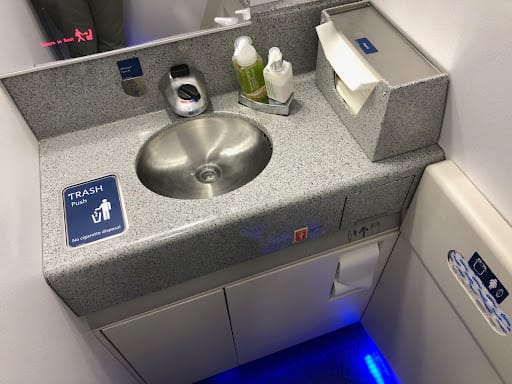Tax Implications of Being a Digital Nomad: What You Need to Know

Being a digital nomad can be thrilling, allowing you to work from stunning locations around the world. However, it also brings a host of tax responsibilities that can be tricky to navigate. Understanding these tax implications is crucial for anyone considering this lifestyle, as it can save you from unexpected costs and legal issues down the road.
Key Takeaways
- Digital nomads must file U.S. taxes, even while living abroad.
- State tax obligations can vary greatly depending on your home state.
- The Foreign Earned Income Exclusion (FEIE) can help reduce U.S. taxes.
- Tracking your time in different countries is essential for tax benefits.
- Ignoring tax responsibilities can lead to hefty penalties and fines.
The Joy of Filing Taxes from a Beach: Digital Nomad Tax Basics
Why the IRS Still Cares About Your Income
Even if you’re sipping cocktails on a beach, the IRS is watching. As a digital nomad, you might think you can escape the taxman, but the U.S. taxes its citizens based on citizenship, not where they live. This means if you earn over a certain amount, you still have to file your taxes, no matter how far you roam.
The Double Taxation Dilemma
Ah, the joy of double taxation! If you’re working in a foreign country, you might find yourself paying taxes there and back home. Here’s a quick look at how this works:
| Country | Tax Rate (%) | Notes |
|---|---|---|
| U.S. | 10-37 | Based on income level |
| Foreign Country | Varies | Check local laws |
To avoid this headache, consider the Foreign Earned Income Exclusion (FEIE) or the Foreign Tax Credit (FTC). These can help reduce your tax burden significantly.
Essential Tax Forms for Digital Nomads
Filing taxes as a digital nomad means dealing with a few essential forms:
- Form 1040: Your main tax return.
- Form 2555: To claim the FEIE.
- Form 1116: For the FTC.
Keeping these forms handy will make your tax season a bit less painful.
Remember, ignoring your tax obligations can lead to penalties that are more painful than a sunburn. Stay compliant to enjoy your nomadic lifestyle without the taxman knocking on your door!
State Taxes: Because One Taxing Authority Isn't Enough
How States Track Your Every Move
If you think you can escape state taxes just because you’re lounging on a beach, think again! States have a knack for tracking your every move. They can keep tabs on you through various means, such as:
- Your driver’s license
- Voter registration
- Vehicle registration
- Bank accounts
- Property ownership
The Dreaded California Tax Trap
Ah, California—the state that just won’t let you go! If you’ve ever lived there, you might still owe them taxes even if you’re sipping cocktails in Bali. Here’s how they can still get you:
- You have a California driver’s license.
- Your family still lives there.
- You own property in the Golden State.
Strategies to Minimize State Tax Obligations
So, how do you dodge the tax bullet? Here are some strategies:
- Change your domicile: Move to a state with no income tax, like Florida or Texas.
- Keep detailed records: Track your travel dates and income to prove you’re not a resident.
- Consult a tax professional: They can help you navigate the murky waters of state tax laws.
Remember, just because you’re a digital nomad doesn’t mean you can escape the taxman. Stay informed and keep your records straight!
Foreign Earned Income Exclusion: Your New Best Friend
Qualifying for the FEIE
So, you want to enjoy the sweet life of being a digital nomad while dodging Uncle Sam's tax grasp? Enter the Foreign Earned Income Exclusion (FEIE). This nifty little rule allows you to exclude up to $126,500 of your foreign income from U.S. taxes for the 2024 tax year. But hold your horses! You need to pass one of two tests:
- Physical Presence Test
- Bona Fide Residence Test
The Bona Fide Residence Test vs. Physical Presence Test
Let’s break it down:
- Physical Presence Test: You must be physically present in a foreign country for at least 330 days during a 12-month period.
- Bona Fide Residence Test: You need to show that you have established a home in a foreign country and intend to stay there.
Pitfalls to Avoid When Claiming the FEIE
Claiming the FEIE isn’t a walk in the park. Here are some common traps:
- Not meeting the tests: If you don’t qualify, you’re out of luck.
- Excluding unearned income: The FEIE only applies to earned income, not interest or dividends.
- Housing expenses: You can also claim a housing exclusion, but only if you first qualify for the FEIE.
Remember: The FEIE is not a free pass. You still need to file your taxes, even if you owe nothing.
In summary, the FEIE can be your best friend, but only if you play by the rules. So, pack your bags, grab your laptop, and get ready to navigate the wild world of taxes while sipping a piña colada on the beach!
Social Security and Medicare: No Escape for the Self-Employed

Understanding Self-Employment Tax
If you think you can escape taxes while sipping cocktails on a beach, think again! Self-employed digital nomads are still on the hook for U.S. self-employment taxes, even if they’re working abroad. This tax is a hefty 15.3% of your income, which includes:
- 12.4% for Social Security
- 2.9% for Medicare
So, while you’re enjoying the sun, Uncle Sam is still keeping an eye on your earnings.
International Social Security Agreements
Now, don’t lose hope just yet! There are Totalization Agreements between the U.S. and many countries that can save you from double taxation. But here’s the catch: if you’re not considered a resident in the country you’re working in, these agreements won’t help you. You might end up paying self-employment taxes in both places. It’s a tax trap!
How to Reduce Your Social Security Tax Burden
Here are some strategies to lighten your tax load:
- Consult a tax professional: They can help you navigate the complexities of international tax laws.
- Check for Totalization Agreements: Make sure you know if the country you’re in has an agreement with the U.S.
- Keep detailed records: Document your time spent in each country to ensure you’re compliant with tax laws.
Remember, ignoring your tax obligations can lead to penalties that could ruin your digital nomad lifestyle. Stay informed and compliant!
Tax Treaties: The Unsung Heroes of Tax Planning
What Are Tax Treaties?
Tax treaties are agreements between two countries that help prevent double taxation. They ensure that you don’t pay taxes on the same income in both countries. Imagine being taxed twice for the same dollar! That’s where these treaties come in handy, like a superhero swooping in to save your wallet.
Countries with Favorable Tax Treaties
Here’s a quick list of countries that have favorable tax treaties with the U.S.:
- United Kingdom
- Germany
- France
- Canada
- Australia
These countries are like the VIP lounge of tax treaties, making it easier for you to keep more of your hard-earned cash.
How to Leverage Tax Treaties to Your Advantage
To make the most of tax treaties, follow these steps:
- Research: Know which treaties apply to your situation.
- File Correctly: Use the right forms to claim treaty benefits.
- Keep Records: Document your income and taxes paid in both countries.
Tax treaties can be your best friend, but only if you know how to use them. Don’t let them go to waste!
The Perils of Ignoring Your Tax Obligations

Penalties for Non-Compliance
Ignoring your tax obligations as a digital nomad can lead to some serious consequences. The IRS is not a fan of tax evasion, and they have tools to track you down. Here are some penalties you might face:
- Fines: These can range from minor to over $10,000.
- Interest: Unpaid taxes accrue interest, making your debt grow.
- Passport issues: You could even lose your passport if you’re seriously out of compliance.
How to Get Back on Track with the IRS
If you’ve been ignoring your taxes, don’t panic! Here’s how to get back on track:
- Assess your situation: Determine how many years you’ve missed.
- Use streamlined procedures: The IRS has programs to help you catch up without penalties.
- Consult a tax professional: They can guide you through the process and help you avoid future issues.
The Role of FATCA in Tracking Digital Nomads
FATCA (Foreign Account Tax Compliance Act) is like a watchdog for the IRS. It requires foreign banks to report on U.S. citizens’ accounts. This means that if you think you can hide, think again! Here’s what you need to know:
- Global reach: FATCA has made it easier for the IRS to find you, no matter where you are.
- Reporting requirements: If your foreign assets exceed certain thresholds, you must report them.
- Consequences of non-compliance: Ignoring FATCA can lead to hefty fines and legal trouble.
Ignoring your tax obligations is like trying to swim with sharks; it’s only a matter of time before you get bitten.
In conclusion, being a digital nomad doesn’t mean you can escape taxes. Stay informed and compliant to avoid the perils of tax evasion!
Navigating Tax Residency: Where Do You Really Live?

Determining Your Tax Home
As a digital nomad, figuring out where you really live for tax purposes can feel like a game of hide and seek. Your tax home is the place where you are legally considered a resident for tax purposes. This can get tricky, especially if you’ve been hopping from one beach to another. Here are some key points to consider:
- Physical Presence: Many countries require you to be physically present for a certain number of days (often 183) to be considered a tax resident.
- Income Source: If you earn money in a country, they might want a piece of that pie, regardless of where you call home.
- Domicile State: Your last state of residence in the U.S. can still come knocking for taxes, especially if you’ve left a trail of breadcrumbs (like a driver’s license or bank account).
The 183-Day Rule Explained
This rule is a common threshold used by many countries to determine tax residency. If you spend 183 days or more in a country, congratulations! You might just be a tax resident there. But wait, there’s more:
- Dual Residency: You could be a tax resident in more than one country, leading to a delightful double tax situation.
- Documentation: Keep a detailed log of your travels. This can help you prove your residency status if the tax authorities come calling.
How to Prove Your Tax Residency
Proving where you live for tax purposes can be as fun as a root canal. Here’s how to make it easier:
- Keep Records: Maintain a detailed travel log that includes dates and locations.
- Establish Ties: Create connections in your claimed domicile state, like updating your driver’s license or registering to vote.
- Consult Professionals: It’s wise to seek advice from tax professionals who understand the complexities of digital nomad taxes.
Navigating tax residency is like trying to find a Wi-Fi signal in the middle of nowhere; it can be frustrating, but it’s essential for your financial health.
In conclusion, understanding your tax residency is crucial for digital nomads. You may think you can escape taxes while sipping cocktails on a beach, but the taxman is always watching. Stay informed and keep your records straight to avoid any nasty surprises!
Digital Nomad Visas: Not Just a Ticket to Paradise
Countries Offering Digital Nomad Visas
Digital nomad visas are like a golden ticket for those who want to work while sipping cocktails on a beach. These visas allow individuals to legally live and work in another country. But don’t get too excited; it’s not all sunshine and rainbows. Here’s a quick look at some countries that offer these enticing visas:
| Country | Minimum Income Requirement | Duration of Stay |
|---|---|---|
| Portugal | $1,200 | 1 year |
| Croatia | $2,000 | 1 year |
| Mexico | $1,500 | 6 months |
Tax Implications of Digital Nomad Visas
While you might think you’ve escaped the taxman, think again! Just because you have a digital nomad visa doesn’t mean you’re off the hook for taxes. Here are some key points to consider:
- You may still owe taxes in your home country.
- Some countries have income tax treaties that can help you avoid double taxation.
- Always check the specific requirements of the visa to avoid nasty surprises.
How to Choose the Right Visa for Your Needs
Choosing the right digital nomad visa can feel like picking a favorite child. Here’s how to make the best choice:
- Research the countries that offer digital nomad visas.
- Understand the income requirements and ensure you meet them.
- Consider the duration of stay and whether it fits your travel plans.
Navigating the world of digital nomad visas can be tricky, but with the right information, you can enjoy your travels without the tax headaches.
So, while digital nomad visas might seem like a ticket to paradise, remember that the taxman is always lurking in the background, ready to spoil your fun!
Tax Deductions and Credits: Your Financial Lifesavers

Common Deductions for Digital Nomads
Being a digital nomad doesn’t mean you have to pay taxes on every single penny you earn. Here are some deductions that can help lighten your tax load:
- Home Office Expenses: If you work from a cozy beach hut or a bustling café, you can deduct costs related to your workspace.
- Travel Expenses: Flights, accommodations, and even meals can be deductible if they are necessary for your work.
- Equipment Costs: Don’t forget to write off your laptop, phone, and any other gadgets that keep you connected to the world.
How to Claim the Foreign Tax Credit
The Foreign Tax Credit (FTC) is like a superhero for your wallet. It allows you to reduce your U.S. tax bill by the amount of foreign taxes you’ve paid. Here’s how to make it work for you:
- Keep Records: Document all foreign taxes paid. This includes income tax, property tax, and even certain sales taxes.
- Fill Out Form 1116: This form is your ticket to claiming the FTC. Make sure to complete it accurately to avoid delays.
- Consult a Tax Professional: If you’re feeling lost, a tax expert can help you navigate the complexities of the FTC.
Maximizing Your Tax Savings
To truly make the most of your tax situation, consider these strategies:
- Stay Informed: Tax laws change frequently. Keep up with the latest updates to ensure you’re not missing out on deductions.
- Use Tax Software: Programs can help you track expenses and ensure you’re claiming everything you’re entitled to.
- Plan Ahead: Think about your travel plans and how they might affect your tax situation. Timing can be everything!
Remember, tax deductions and credits are your friends! They can significantly reduce your tax burden, allowing you to enjoy more of your hard-earned money while living the digital nomad life.
Table of Key Deductions and Credits
| Deduction/Credit | Description |
|---|---|
| Home Office Expenses | Costs related to your workspace |
| Travel Expenses | Flights, accommodations, meals for work |
| Equipment Costs | Laptops, phones, and other necessary gadgets |
| Foreign Tax Credit (FTC) | Reduces U.S. tax bill based on foreign taxes paid |
In conclusion, while taxes may seem daunting, understanding your deductions and credits can turn them into your financial lifesavers. So, don’t let tax season ruin your beach vibes!
The Spreadsheet Life: Tracking Your Income and Travel
Why You Need a Detailed Log
Living the digital nomad life sounds glamorous, but keeping track of your finances can feel like a full-time job. You need to know where you’ve been, how much you’ve earned, and what taxes you owe. Here’s why a detailed log is essential:
- Tax compliance: Different countries and states have different rules. Keeping a log helps you stay on the right side of the law.
- Income tracking: Knowing how much you earn in each location can help you plan better.
- Expense management: It’s easy to overspend when you’re traveling. A log helps you keep your budget in check.
Tools and Apps for Tracking
You don’t have to do it all on paper! Here are some tools that can help:
- Spreadsheet software: Google Sheets or Excel can be your best friends.
- Expense tracking apps: Apps like Mint or Expensify can simplify your life.
- Travel logs: Use apps like TripIt to keep all your travel details in one place.
How to Use Your Log for Tax Filing
When tax season rolls around, your log will be your best ally. Here’s how to make the most of it:
- Organize by date: Keep entries chronological for easy reference.
- Categorize income and expenses: This will help you identify deductions.
- Save receipts: Attach digital copies to your log for proof.
Keeping a detailed log is not just a good idea; it’s a necessity for any digital nomad. Without it, you might find yourself in a tax nightmare.
| Month | Location | Income Earned | Expenses | Notes |
|---|---|---|---|---|
| January | Bali | $3,000 | $1,200 | Great co-working space! |
| February | Thailand | $2,500 | $800 | Amazing street food! |
| March | Vietnam | $2,800 | $1,000 | Met other nomads! |
The Myth of the Tax-Free Digital Nomad
Why You Can't Escape Taxes
Many dream of being a digital nomad, sipping cocktails on a beach while raking in cash. But guess what? The taxman is always watching! Just because you’re working from a tropical paradise doesn’t mean you can dodge your tax responsibilities. Here are some key points to consider:
- U.S. citizens must file taxes no matter where they are.
- Many countries don’t offer tax breaks for digital nomads.
- Ignoring tax obligations can lead to hefty penalties.
Common Misconceptions
Let’s bust some myths:
- "I can live tax-free!" Nope, not unless you’re living in a tax haven and meet specific criteria.
- "Digital nomad visas mean no taxes!" Wrong! These visas often don’t exempt you from local taxes.
- "I can just ignore it!" That’s a fast track to trouble with the IRS.
Real-Life Stories of Tax Woes
Many digital nomads have faced unexpected tax bills. For instance, a survey found that 79% of digital nomad visas offer no relief from individual tax obligations. Imagine working hard, only to find out you owe a chunk of your earnings to Uncle Sam!
Remember: Just because you’re traveling doesn’t mean you can escape the tax net. Stay informed and compliant to avoid nasty surprises!
Many people think that being a digital nomad means you can avoid taxes altogether. This is a common misunderstanding! In reality, tax laws can be quite complex, and most digital nomads still have to pay taxes, depending on where they live and work. If you want to learn more about the truth behind this myth and get helpful travel tips, visit our website!
Final Thoughts on Taxing Adventures
So, you’re living the dream as a digital nomad, hopping from one exotic location to another, all while trying to dodge the taxman. But hold your horses! Just because you’re sipping a piña colada on a beach doesn’t mean you can ignore your tax duties. The truth is, Uncle Sam wants his cut, no matter where you are. You’ll need to keep track of your earnings and where you’ve been, or you might find yourself in a tax pickle. And let’s be real, nobody wants to deal with the IRS while trying to enjoy a sunset in Bali. So, before you pack your bags, make sure you know the tax rules. Because in the end, the only thing worse than a sunburn is a hefty tax bill!
Frequently Asked Questions
Do digital nomads need to file U.S. taxes?
Yes, if you are a U.S. citizen and earn over a certain amount, you must file a U.S. tax return, no matter where you are.
How do state taxes work for digital nomads?
State taxes depend on where you last lived and earned income. Some states may still tax you even if you have moved.
What is the Foreign Earned Income Exclusion (FEIE)?
The FEIE allows you to exclude some of your foreign income from U.S. taxes if you meet certain conditions.
Do I have to pay taxes in the country where I work?
It depends on the tax laws of that country. Many countries tax residents on their worldwide income.
What are the penalties for not filing taxes?
Not filing taxes can lead to fines, and in severe cases, you could lose your passport.
Can I get tax credits as a digital nomad?
Yes, you may qualify for tax credits, like the Foreign Tax Credit, which can reduce your U.S. tax bill.
How can I track my income and travel for taxes?
Keeping a detailed log of your travels and earnings is essential. You can use spreadsheets or apps to help.
What should I know about digital nomad visas?
Digital nomad visas allow you to live and work in certain countries, but check the tax implications before applying.




